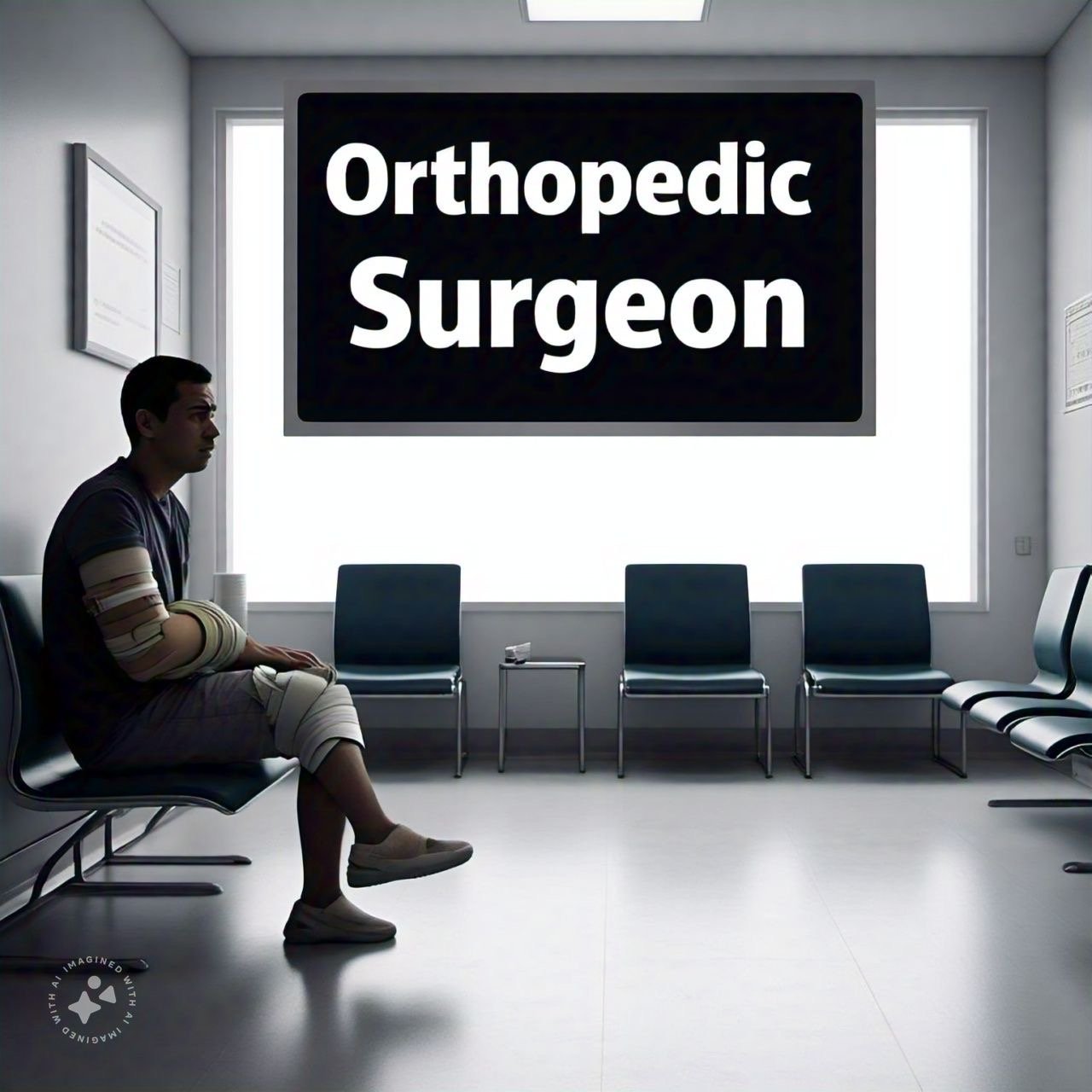When to See an Orthopedic Surgeon: Signs You Need Professional Help
Musculoskeletal problems can significantly impact our daily lives, from minor aches and pains to debilitating conditions that limit our mobility. Knowing when to seek professional help from an orthopedic surgeon is crucial for maintaining your health and well-being. While some discomfort may be temporary, persistent or worsening symptoms could signal a more serious underlying issue. In this article, we’ll explore the key signs that indicate it’s time to see an orthopedic surgeon and the role they play in diagnosing and treating musculoskeletal conditions.
Understanding the Role of an Orthopedic Surgeon
Orthopedic surgeons specialize in diagnosing, treating, and preventing conditions related to the bones, joints, ligaments, tendons, and muscles. These medical professionals have extensive training in both surgical and non-surgical treatments to address a wide range of musculoskeletal issues, from fractures and sports injuries to arthritis and chronic pain.
Dr. James Dwyer, a Board-Certified Orthopedic Surgeon, can help you understand the best course of action for your condition, whether it requires physical therapy, injections, or surgical intervention. An orthopedic surgeon’s expertise allows for a comprehensive approach to care, ensuring the most effective treatment plan tailored to your specific needs.
Persistent Pain or Discomfort
One of the most common reasons people seek orthopedic care is persistent pain or discomfort. While everyone experiences occasional aches, when pain lasts for weeks or months without relief, it’s time to take it seriously. Chronic pain is often a sign of an underlying issue that requires professional evaluation. Conditions like arthritis, tendonitis, or nerve impingement can lead to ongoing discomfort, which may worsen if left untreated.
If you’re experiencing pain that interferes with your daily activities whether it’s walking, sitting, or even sleeping an orthopedic surgeon can help diagnose the cause and recommend appropriate treatment. This may involve medication, physical therapy, or more advanced interventions like injections or surgery, depending on the severity of the condition.
Limited Range of Motion
A reduced range of motion in your joints or limbs can be a clear sign that something isn’t right. Whether it’s stiffness in the shoulders, knees, hips, or back, restricted movement can significantly impact your quality of life. Limited mobility may result from injuries, arthritis, or muscle imbalances that cause the joints to become inflamed or damaged over time.
Orthopedic surgeons are trained to assess the underlying cause of mobility restrictions and provide tailored treatment options to restore full function. Conditions such as frozen shoulder, rotator cuff injuries, or hip joint degeneration can cause severe limitations in movement, and seeing an orthopedic surgeon early can prevent further damage and help restore normal motion.
Swelling, Bruising, or Inflammation
If you notice unexplained swelling, bruising, or inflammation around a joint or bone, it may indicate an injury or underlying condition that requires medical attention. While swelling can occur after physical exertion or minor injuries, persistent or severe swelling could suggest a more serious issue, such as a sprain, strain, or fracture.
Infections can also cause swelling, redness, and warmth in the affected area, which require immediate medical attention. An orthopedic surgeon can conduct a thorough examination, perform diagnostic imaging, and recommend the appropriate treatment. In some cases, physical therapy may be sufficient, while in other cases, surgery may be necessary to correct the issue.
Numbness or Tingling Sensations
Numbness, tingling, or weakness in your arms, legs, or hands is often a sign of nerve impingement or damage. These sensations can be caused by conditions like carpal tunnel syndrome, herniated discs, or sciatica. While these symptoms may start as mild discomfort, they can worsen over time and lead to permanent nerve damage if not addressed promptly.
If you’re experiencing persistent numbness or tingling, it’s important to consult an orthopedic surgeon who can evaluate the cause and recommend appropriate treatment. Treatment may involve physical therapy, medications, or in more severe cases, surgery to relieve pressure on the affected nerves and restore function.
Difficulty in Walking or Standing
Struggling to walk or stand for extended periods is another sign that an orthopedic problem may be at play. This type of difficulty is often caused by issues with the spine, hips, knees, or ankles. Conditions like hip dysplasia, spinal stenosis, or joint instability can impair your ability to move freely and safely.
Orthopedic surgeons specialize in diagnosing and treating conditions that affect mobility. Whether through joint replacement, corrective surgery, or non-surgical interventions, an orthopedic surgeon can help restore your ability to walk, stand, and move without pain or restriction. If you’re experiencing difficulty with basic movements, it’s essential to seek professional advice before the condition worsens.
After Trauma or Injury
Suppose you’ve experienced a fall, sports injury, or any significant trauma to your body. In that case, it’s essential to seek medical attention, especially if you’re experiencing severe pain, bruising, or a noticeable deformity in the affected area. Injuries like fractures, dislocations, and ligament tears may require immediate intervention to prevent complications and ensure proper healing.
Even if the injury seems minor, it’s still a good idea to consult an orthopedic surgeon. Sometimes, what seems like a small sprain or strain can lead to long-term complications if not treated properly. An orthopedic surgeon can perform diagnostic tests, such as X-rays or MRIs, to assess the damage and create an appropriate treatment plan.
Conclusion
Knowing when to see an orthopedic surgeon is essential for maintaining your musculoskeletal health. Whether you’re experiencing persistent pain, limited mobility, or numbness, seeking professional help early can help prevent further complications and improve your quality of life.
Orthopedic surgeons, like Dr. James Dwyer, are skilled in diagnosing and treating a wide variety of conditions, offering both surgical and non-surgical treatment options to address your specific needs. If you’re experiencing any of the symptoms discussed in this article, don’t wait schedule a consultation with an orthopedic surgeon today and take the first step toward feeling better.
By recognizing the signs and seeking timely treatment, you can improve your chances of a full recovery and enjoy a more active, pain-free life.







